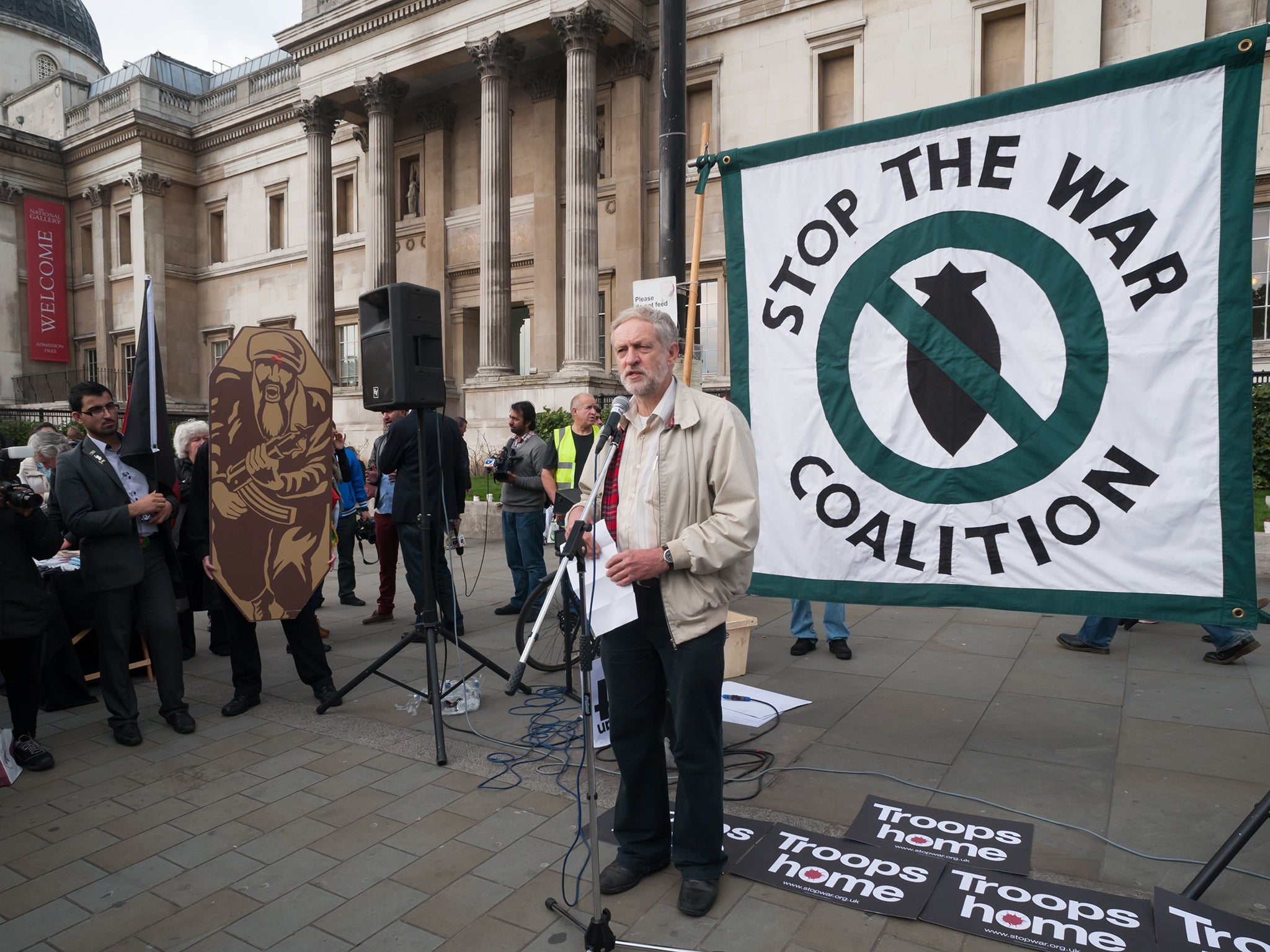Jeremy Corbyn should renounce the Stop the War Coalition
There is a split between the group’s laudable title and its more dubious workings

The best thing about the Stop the War Coalition, according to a former Labour candidate Kate Godfrey, is “the name”. And the worst? “Everything else.”
Hers is perhaps the pithiest critique of a group that has surged into the headlines, thanks to its close links with Jeremy Corbyn, who was chair between 2011 and 2015, and its protests against military action in Syria – demonstrations pursued with particular vehemence against Labour MPs who voted with the Government.
There is, indeed, a split between the group’s laudable title and its more dubious workings. Any nation that loses its dread of war loses its moral compass, and an organisation that existed purely to remind policy-makers of the horrors of military action could not merit the amount of criticism levelled at StW in the past few weeks.
It has not always been this exposed. StW was instrumental in mobilising widespread aversion to the 2003 Iraq war, culminating in the march on Parliament that attracted the largest crowd of any demonstration in British history. At the time, it marshalled arguments that this newspaper – among others – promoted, and managed to attract support from across the political spectrum. Yet in the years that followed, the crowds washed away to reveal the group’s foundations – which, with key organisers such as Lindsey German arriving from the Socialist Workers Party, lie to the extreme left.
Stop the War has been evidently off kilter for some years now; whether it be defending Russia’s 2008 war in Georgia, or its annexation of Crimea, or its ongoing covert invasion of eastern Ukraine. Hard left is as hard left does; all too often that means support for Russian policy, never mind that the country is now run by a despot.
More recently, its hatred of “imperialists” has left the group in a de facto alliance with Bashar al-Assad: Syrians who wanted to speak out against his regime were silenced and thrown out of a conference. To top things off, the Paris attacks were callously interpreted in a tweet as France merely reaping what it had sown; and appearing on the StW website last week was an article claiming that Isis has far more in common with the socialist cause than David Cameron and his bombing campaign. A more appropriate title for Stop the War would be Stop the West.
There is, then, good reason to step away from a group that has toxified the pacifist cause. It cannot be denied that there is an element of political opportunism in some of the pressure on Mr Corbyn to do so. Among the critics of Stop the War, including the 500 Labour supporters who have signed an open letter, there are those who want to taint the Labour leader with the organisation’s more extreme fringes.
But Mr Corbyn, in his aspiration to run the country one day, should be wise enough to remove himself of his own accord. Even putting aside the suspect alliances of StW, pacifism is not the answer to all today’s problems, just as it was not in 1938. Sometimes the strong must defend the weak, and compromises be made. Even Diane Abbott, the shadow International Development Secretary, admitted on Question Time that it was right to bomb Isis in Iraq, in defence of the Yazidis threatened with genocide. She had voted against such action in September 2014, as did Mr Corbyn. But such instinctive pacifism does not travel well outside a small cloister of ideological soul-mates, as Ms Abbott came to realise on live TV.
It is time Mr Corbyn showed similar flexibility, and renounced the company of old friends for a true pitch at new ones.
Join our commenting forum
Join thought-provoking conversations, follow other Independent readers and see their replies
Comments
Bookmark popover
Removed from bookmarks